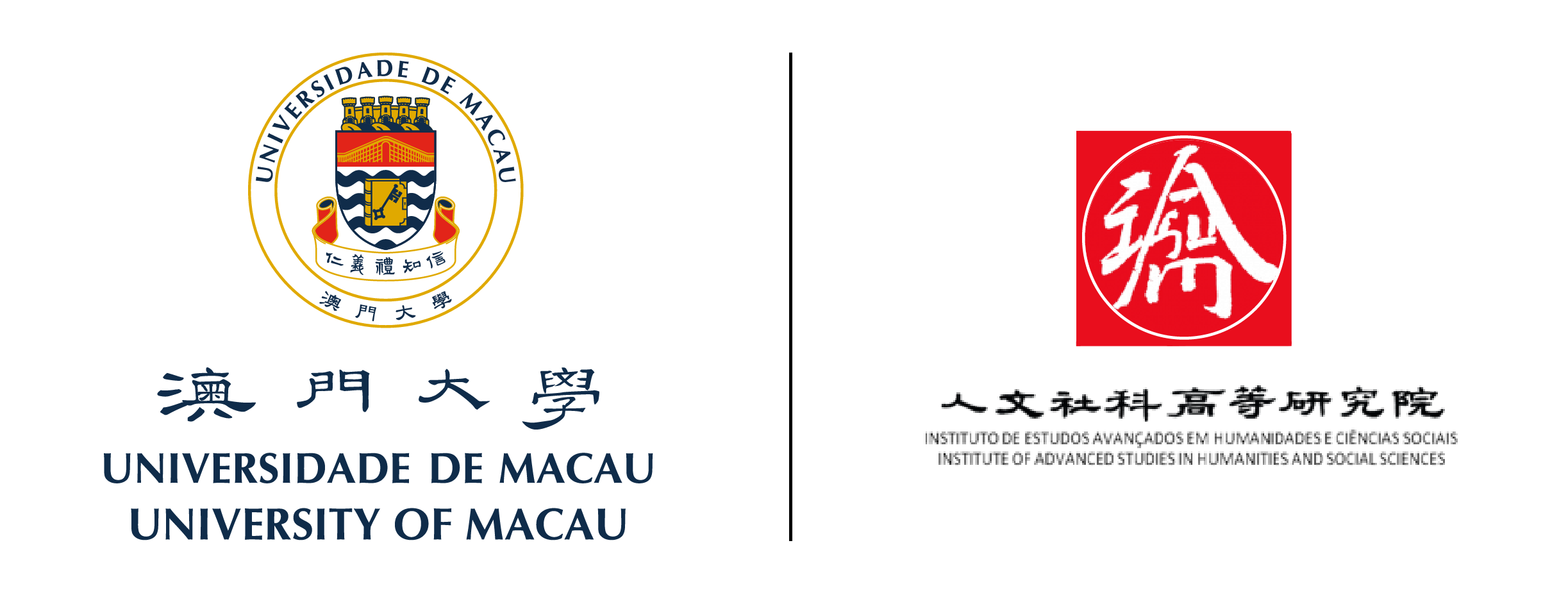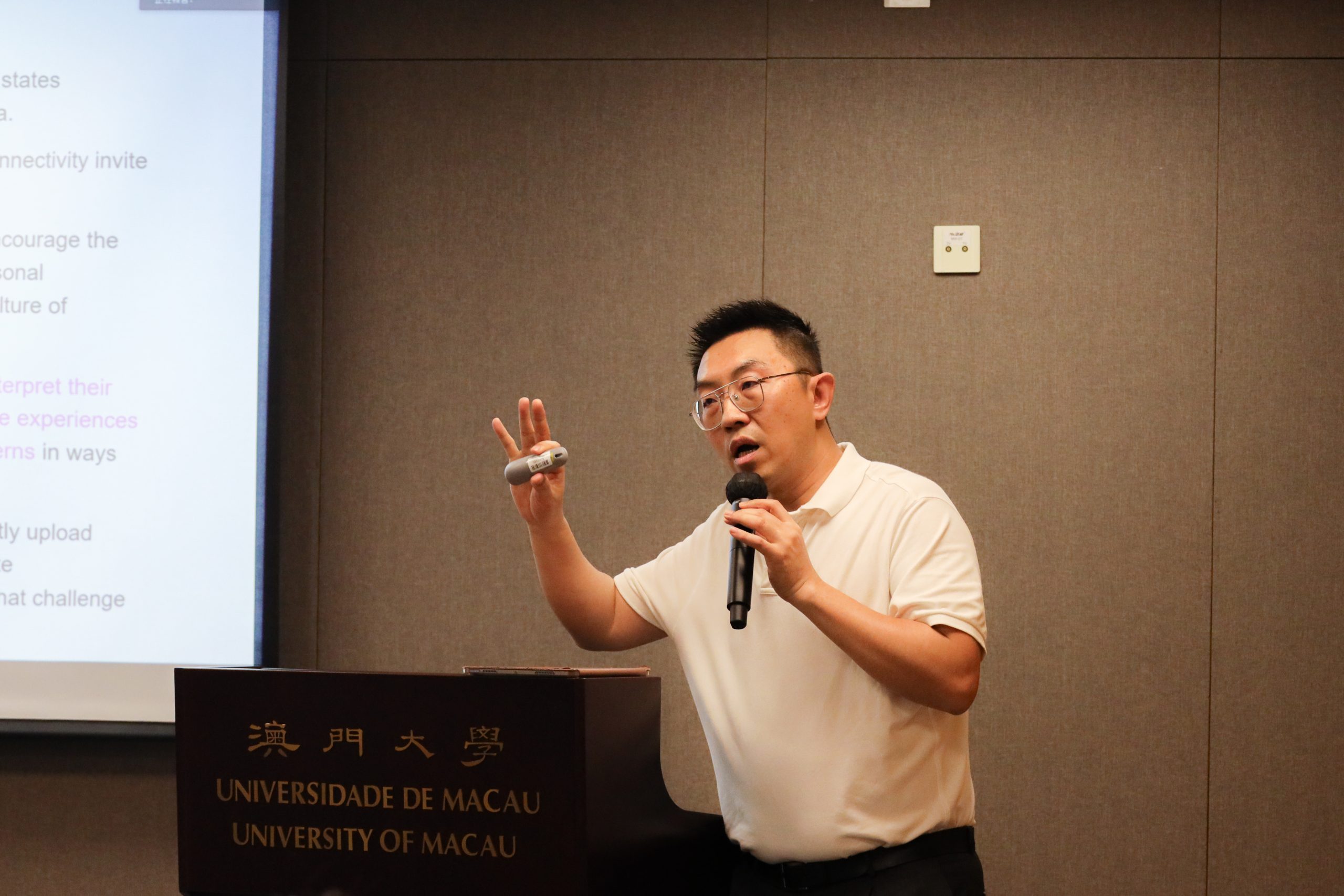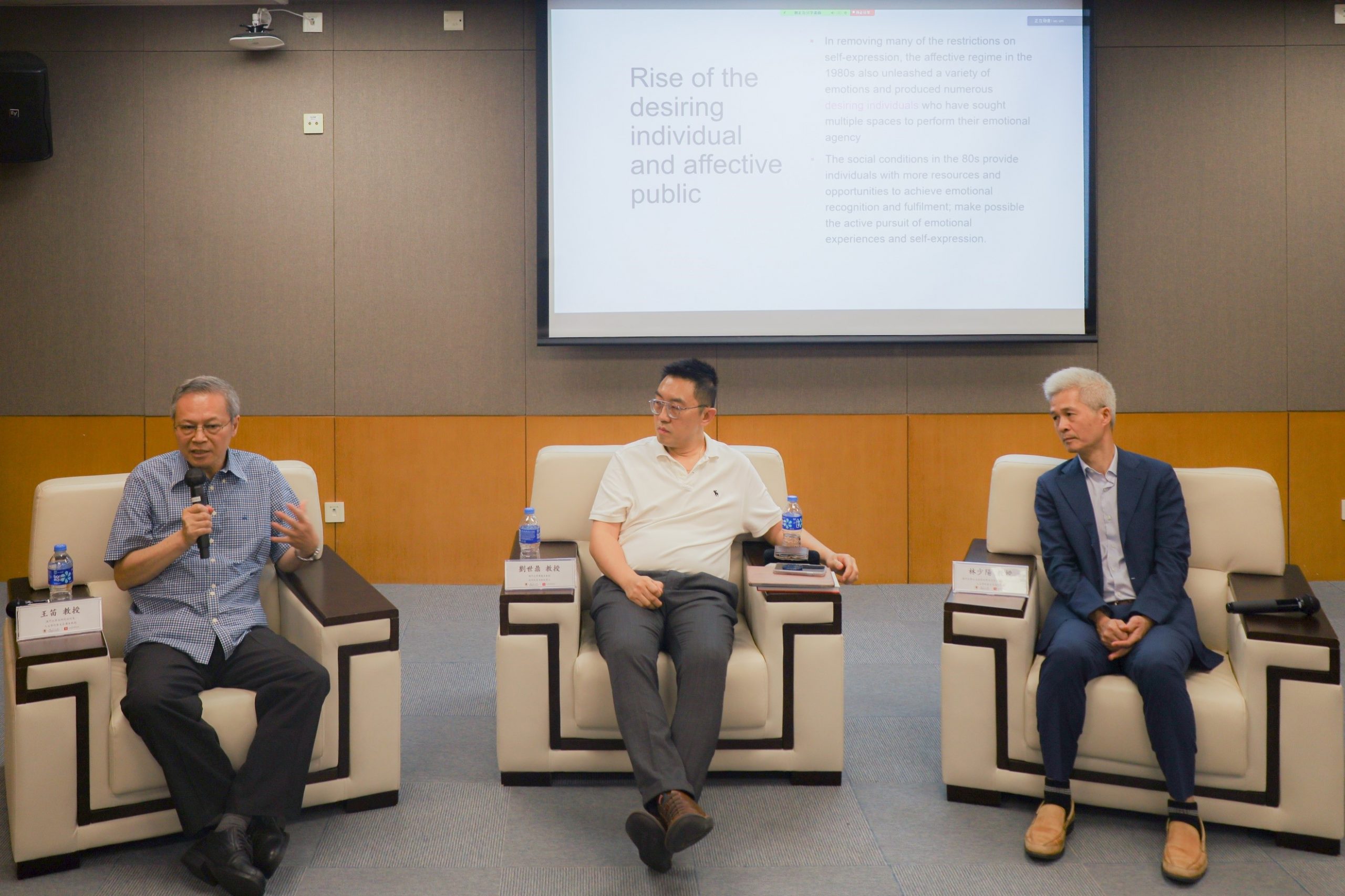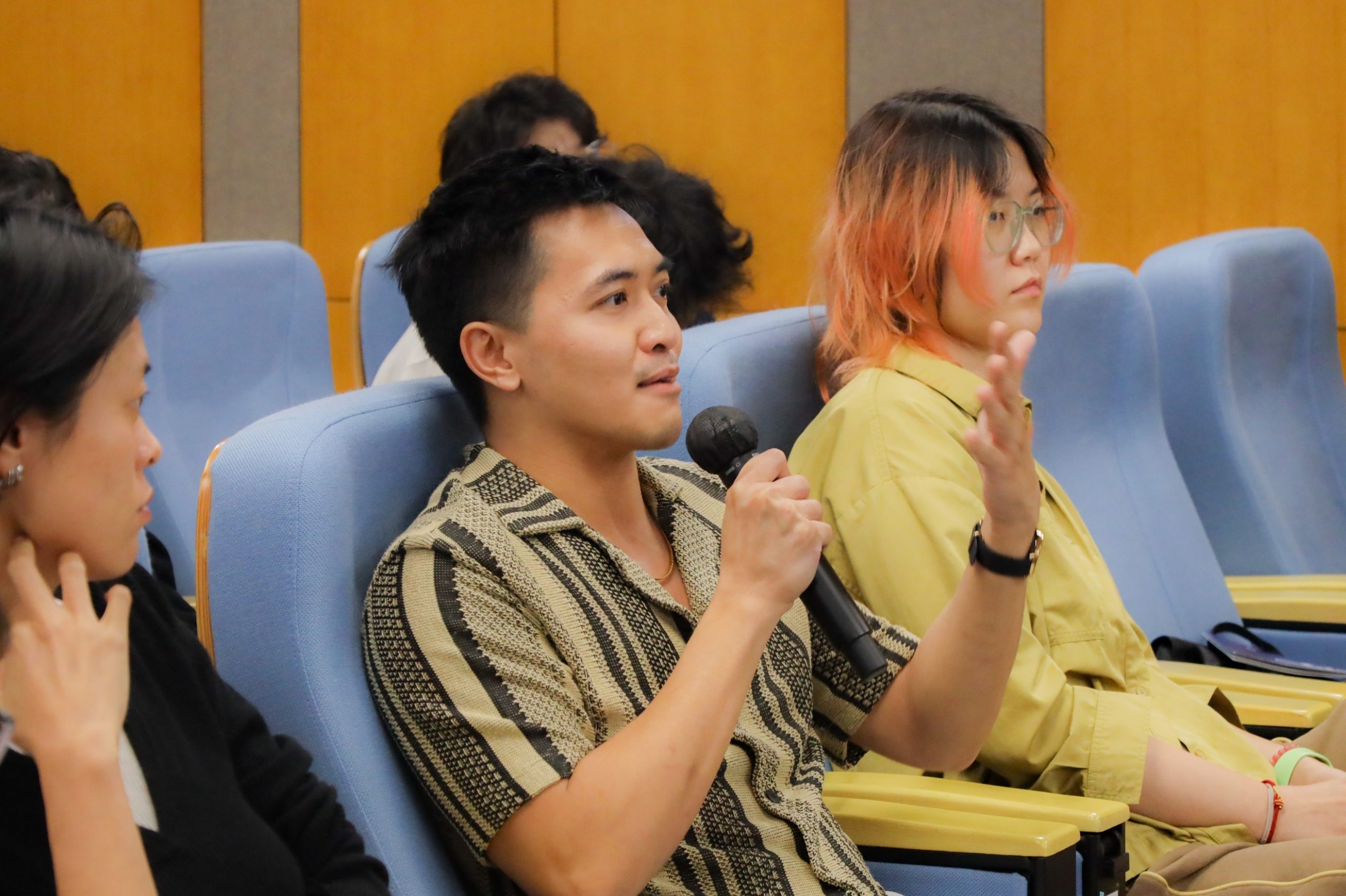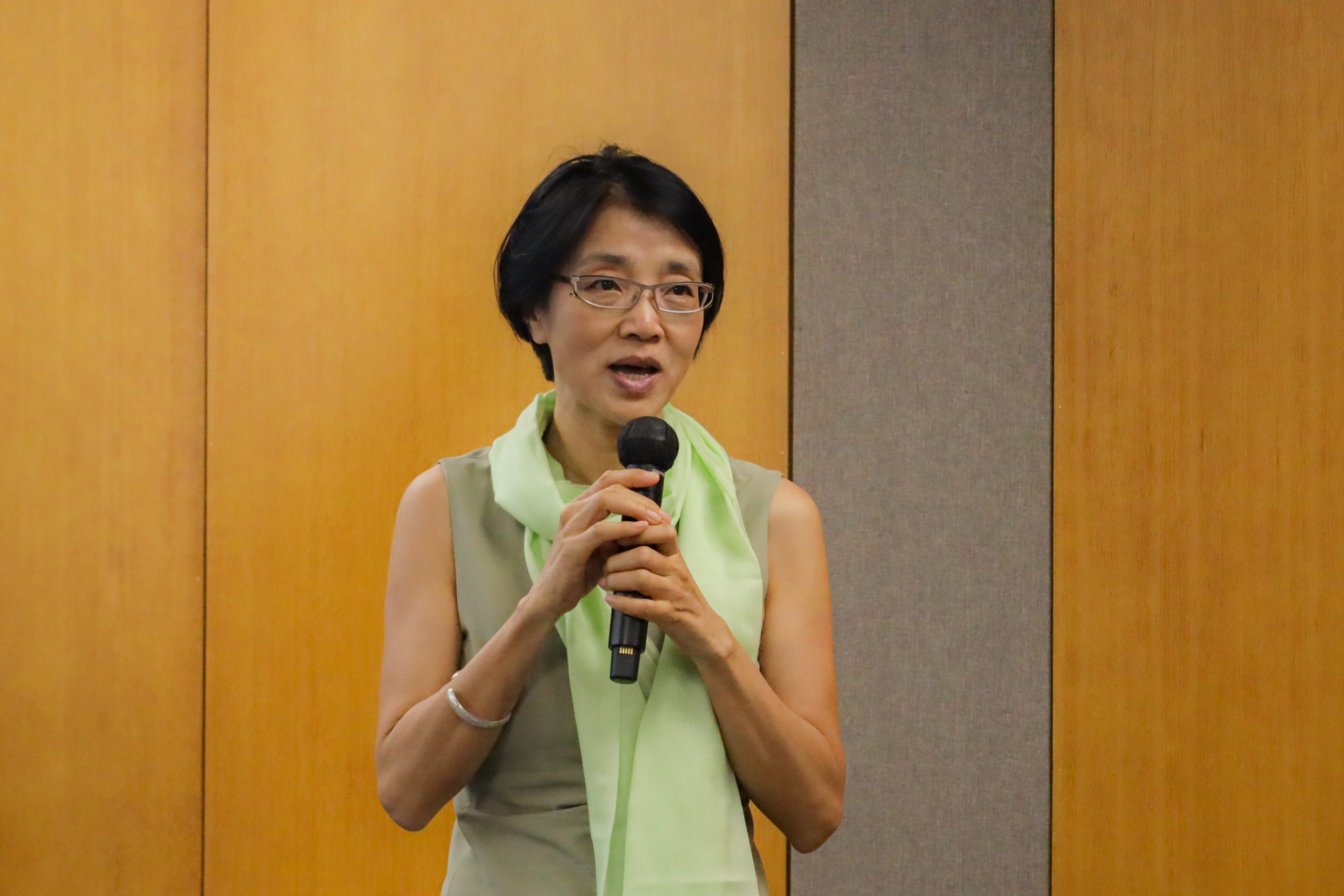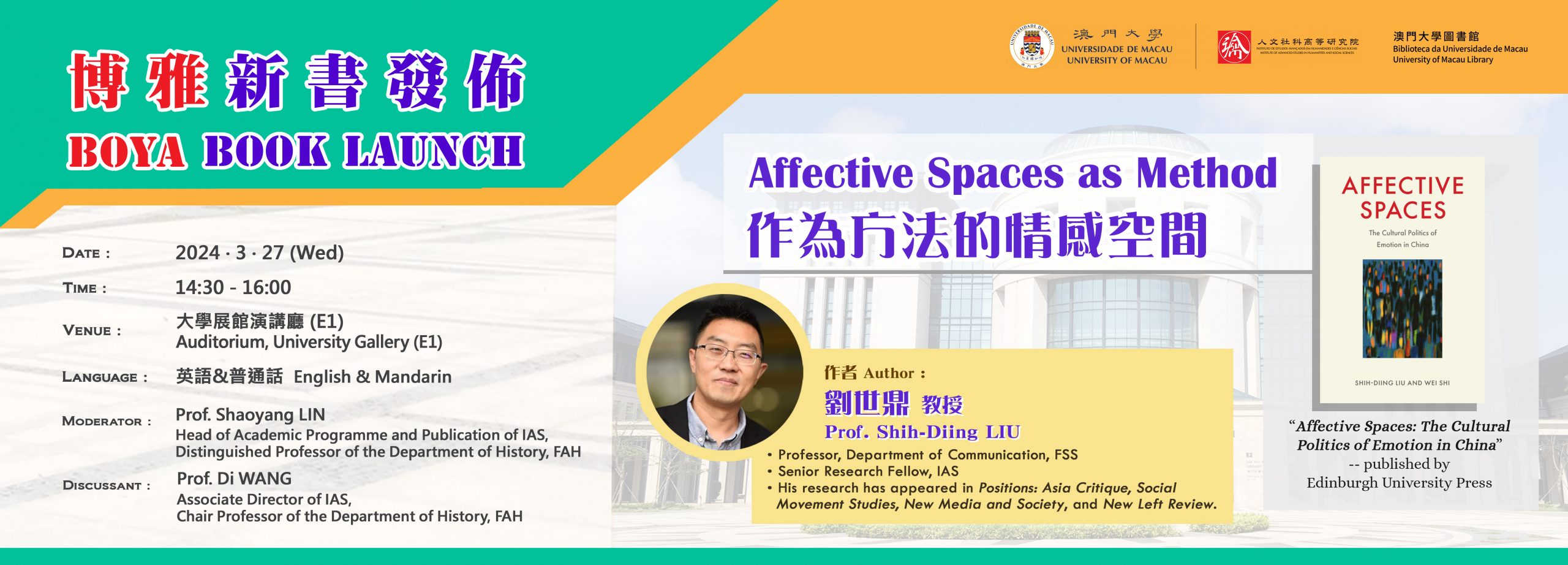
The “Boya Book Launch” organized by the Institute of Advanced Studies in Humanities and Social Sciences (IAS) and the UM Library was successfully held on March 27th at the University Gallery. Prof. Liu Shih-Diing from the Department of Communication and Senior Research Fellow of IAS was invited to give a lecture on the theme “Affective Spaces as Method” for his new book “Affective Spaces: The Cultural Politics and Emotion of China”. This lecture also invited Prof. Lin Shaoyang, Distinguished Professor of the Department of History, and Head of Academic Programs and Publication of IAS to be the moderator, and Prof. Wang Di, Chair Professor of the Department of History, and Associate Director of IAS to be the discussant.
At the beginning of the lecture, Prof. Liu introduced the content and background of the book, sharing how affect and emotion create new ways of understanding Chinese subjectivity, society and politics and why affect and emotion matter to politics. He pointed out that affective space is not a singular space in an empirical sense but instead disseminated into and entwined with different social fields and hegemonic struggles in everyday life. It houses a range of widely felt, commonly shared emotions. Affective space has a tendency and potentiality to cross the physical boundary. It is amorphous and ever-shifting as well as a medium bridging subject and object, private and public, self and other. At the same time, he also proposed five types of affective space, but for this lecture, he focused on the type of “Internet-mediated affective space”. He discussed how social media and emotions intersect and how social media contestation and memorialization create affective spaces, leading to the concepts of desiring individual and affective public, which emphasize that people reinterpret their lives and identities in terms of public events, and thereby challenging grand narratives. Prof. Liu concluded that “social media has made visible the structure of feelings that cannot be captured by grand narratives”.
Prof. Wang Di gave his insights on grand narratives and tiny feelings from the perspective of a historian. He said that social media gives people the opportunity to express their feelings and criticisms, forming public opinions that more or less influence some of the policy making. However, the public affect presented in social media are also highly selected, which may mislead some readers and policymakers. He suggested that how to prevent the misleading is necessary. Prof. Liu responded to this question by stating that from the perspective of affective space, it is not about pursuing the verification of “truth”, but rather about looking for the structure of feelings and capturing the tiny feelings.
In the Q&A session, the topic of how researchers can objectively deal with the emotions and feelings generated during the research process was discussed. Prof. Shi Wei pointed out that the researcher is an observer and it is difficult to be completely cut off from the materials, and doing research is more like a way to provide observation of the phenomenon. In addition, there was a heated discussion about the interpretation of tiny feelings. The event attracted audience from a variety of fields and disciplines, and received an enthusiastic response.

